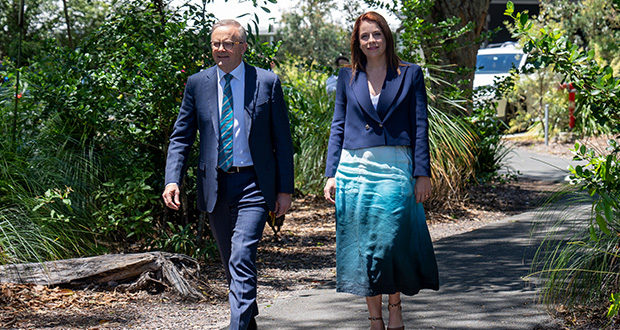While the majority of the aged care industry has welcomed the interim decision to raise wages by 15 per cent, sector advocates want more emphasis on recruitment and a pay rise for all staff employed in the sector.
Last Friday, the Fair Work Commission handed down their 300-page decision to increase wages for direct aged care workers with a possibility of a further rise to come.
Chief of aged care advocacy group COTA Ian Yates said that while it's a positive movement, questions around the implementation period and a pay rise for indirect staff remain unanswered.
"That it's an interim decision shows that the Commission recognised the urgency of the workforce issues," Yates told Aged Care Insite.
"We hope that they will soon work out the timing and also a pay rise for the workers this wage increase doesn't apply to.
"Because all people working in the industry are important."
The Commission's decision left out administrative workers, allied health staff and other lifestyle employees who took to social media to share their frustration.
One of those fighting for a pay rise for all roles was Aged care provider Baptist Care Australia's chief Viv Allanson, who told ABC News the sector 'can't run without them.'
"We need to resolve the categories of workers that are not covered by the interim decision," Yates said.
The high-profile wage case was backed by the government, which put money aside in its recent budget to cover the pay rise's costs.
The Commission has called a hearing with the government on November 22nd, who'll be consulting with the sector soon about what measures Labor will be pushing for, Yates said.
"The government has made an absolute commitment to fund, so we expect it to support all the associated costs.
"But we're hopeful it will be more than 15 in the final decision.
"We thought, per the consensus statement, 25 per cent was a reasonable claim."
The Health Services Union has been pushing for a wage increase of 25 per cent, which would raise the hourly wage by $5, to solve the workforce's retention and attraction issues.
It's projected that up to 139,000 aged care workers will leave the sector by 2026 due to high workloads and concerns among staff that implementing the new reforms will exacerbate that burden.
The sector will need a steady influx of roughly 35,000 staff each year to fill the growing workforce shortage.
Australia's workforce heavily relies on overseas recruitment, with an estimated 37 per cent of staff originally coming from abroad.
Yet, people coming from overseas potentially face issues receiving a valid visa on which they can stay and work in Australia.
Home Affairs Minister Clare O'Neil recently said the nation's immigration was 'in a state of disrepair' with 'massive visa queues' hindering people from entering and finding employment in Australia.
O'Neill commented after the Australian Federal Police briefed her on reports revealing human trafficking and workers being exploited.
While Yates said he has not heard that to be commonplace in the industry, he did highlight a significant issue of people applying for permanent visas while working on temporary arrangements.
"We need to focus on targeted recruitment with priority processing of visas," Yates said.
"From the Pacific, India and the Philippines, all countries with fewer language barriers and comparable qualifications."
During heavy Covid restrictions, it's estimated around half a million temporary migrants left Australia.
The nation's workforce is expected to be short of 600,000 overseas workers, including aged care workers, that would otherwise have arrived.
Other overseas workers may be waiting an average of 812 days before receiving a final decision about immigration on their visa application.
Yates said that speeding up the visa system and visa priorities will have a positive impact.
"Aged care should be a high priority," Yates said.
"I know every industry is saying they're a high priority, but in hospitality, it's an inconvenience.
"In aged care, it's a significant problem for the most vulnerable in our community."
Do you have an idea for a story?Email [email protected]
 Aged Care Insite Australia's number one aged care news source
Aged Care Insite Australia's number one aged care news source


Allied health workers provide DIRECT care but have not been included in this wage rise.
I agree. Why has allied health not been included when care provided is “direct” to the client in their home and not indirect. It seems discriminatory that certain awards have been recognized. This will not stop the drain from allied health who currently have long waitlist due to decreasing numbers leaving to work in areas where the wages are indicative of their value